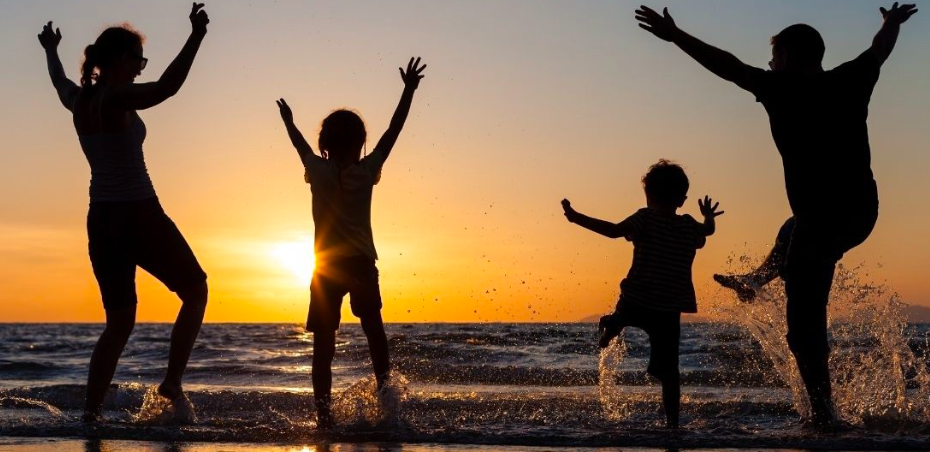Listen to the podcast version.
Watch a 1-minute summary video.
All parents want to protect their kids from harm and for them to have happy lives. The question is: “How?”
As they grow up, most teenagers make at least some bad decisions, and it’s hard for parents to know what to do. Wouldn’t it be great if there were proven, practical techniques we could use to raise our kids well?
That’s what this article is all about. Because “PACES for Parents” is a program that can help Moms and Dads know what to do—even when they don’t know what to do. The good news is that we don’t have to be perfect parents, because no one is. And we don’t have to change our lives overnight. We just need to keep taking small, positive steps.
“P-A-C-E-S” is a convenient acronym to help parents remember what steps to take to help our kids prosper and protect them from dangerous issues such as substance abuse. In this article, we will briefly explain those 5 areas and suggest 1 step parents can take in each. And we will also show that we can learn a lot about what to do by thinking about what not to do as well.
P – Preparation
Become proactive and prepared to help our kids thrive and protect them from substance abuse.
Becoming the best parent we can be starts by being the best person we can be. We will be better able to help our kids grow up well when we first set a positive example by living well ourselves. That starts by recognizing that we all have issues and things we need to be working on. Getting our act together clears the decks so we can parent our kids with a clear and balanced point of view.
The next right step: Commit to 1 thing we will work on emotionally, spiritually, or personally. For example, “I will pause when I start to feel angry, I will spend time each day in prayer and meditation, or I will have a conversation each week about something important.”
3 things NOT to do:
- Ignore our kids’ issues or enable them because we feel guilty about facing our own habits.
- Become too angry or controlling with them because we have not addressed our own issues.
- Not be present for our son or daughter because we are distracted by our self-serving nature.
A – Awareness
Be aware of what our kids are going through and challenges they face.
Two of the most common statements parents make after they lose a son or daughter to drugs are: “We didn’t think it could happen to our family” and “We weren’t aware of how bad it had gotten.” It’s the responsibility of every parent to learn the risk factors and warning signs of substance abuse rather than ignore or downplay a negative progression in our kids’ behavior.
The next right step: Pause to think about these 2 questions for our kids: “Are there risk factors that increase the odds of substance abuse for them?” and “Are we seeing warning signs of negative behavior that seem to be getting worse rather than better?”
3 things NOT to do:
- Ignore it when our son drops his old friends to hang out with some we never see.
- Downplay it when he lies to us, gets angry all the time, and steals from us.
- Do nothing after we’ve caught him several times in questionable behavior.
C – Connection
Deepen and strengthen our relationship with our son or daughter.
One of the most important things we can do with our kids is to invest the time to be with them, have fun together, and form loving and trusted relationships with them. Then, do that some more. We need to proactively think about the things they need to hear and find the right time to have those conversations. And, most of the time, just listen to them. Then, do that some more.
The next right step: Once a week, have a conversation with each of our kids with no lecturing, preaching, or yelling. Ask questions and listen deeply to their answers. Then, do that some more.
3 things NOT to do:
- Allow pride to keep us from having open and vulnerable conversations with our kids.
- Do all the talking in those conversations rather than listening to what they have to say.
- Think problems will go away on their own if we ignore them and don’t talk about them.
E – Education
Equip our kids with skills to deal with life issues and situations they will face.
Being a parent is hard. When our kids are struggling or making bad decisions, it’s very hard. We want to help them and protect them from harm, but sometimes we simply don’t know what to do. When we search the internet, we find an overwhelming array of information. In spite of that clutter, it’s our responsibility to determine what steps we can take to be the best parent we can be.
The next right step: Ask our kids for examples of risky circumstances and questionable behavior they see going on with their friends. Ask them how they feel they should handle those situations.
3 things NOT to do:
- Do nothing—instead, invest the time to select a few small steps we can take for our family.
- Ignore or downplay it when our kids tell us something is going on that they are worried about.
- Procrastinate getting education that can help us in one of our most important roles: as parents.
S – Steps
Build a plan that helps our child become the man or woman they are meant to be.
Most parents are busy—sometimes too busy. Too busy to anticipate where our kids may struggle. Too busy to think about what might help them when they do. And too busy to do anything about it. We take time to build plans at work, and even to plan our vacations. But we somehow think that sitting in the stands or the audience watching our kids perform is all it takes to be a great parent.
The next right step: Think about each of our kids, their strengths, and where they may struggle and write down a proactive parenting plan for small, positive steps we can take to help them.
3 things NOT to do:
- Think we don’t influence our kids, because parents play a critical role in their development.
- Spend all our time on urgent tasks rather than investing time in those that are important.
- Have only occasional discussions with our spouse about our kids rather than building a plan.
The five areas in PACES lead us to practical steps any parent can take to protect their kids from addiction and help them lead a happier life. And that’s all we can do: keep taking positive steps.
It’s up to us to decide that we will help our kids avoid the life-changing tragedy of addiction.
At the same time, we can move from anxiety and fear to confidence and action as we help our son or daughter become the person they are meant to be. One step at a time.
Question: Should you work through all five PACES areas in order or start with one in particular?
Action: Select the next right steps you will take to become the best parent you can be.




